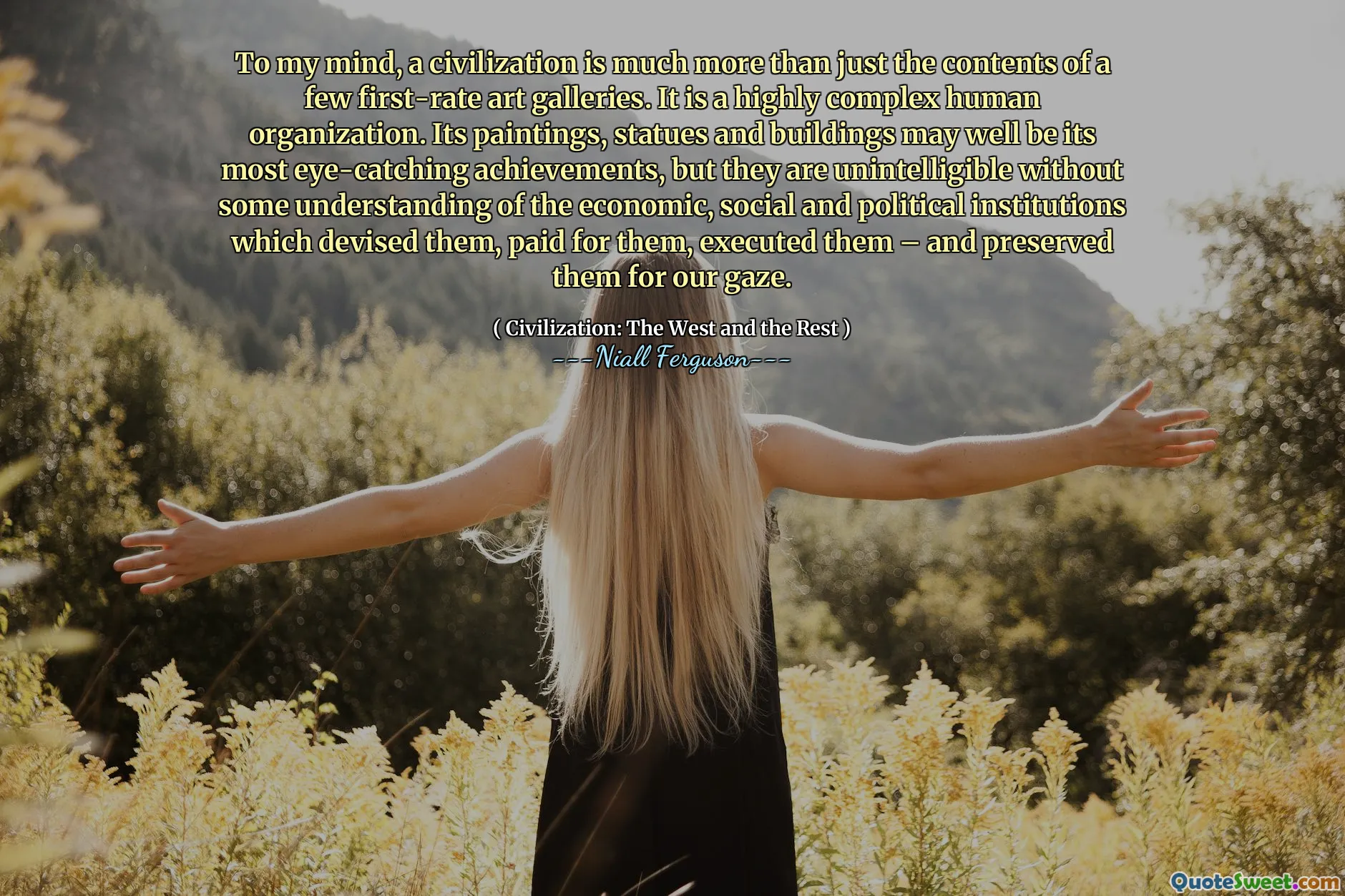
To my mind, a civilization is much more than just the contents of a few first-rate art galleries. It is a highly complex human organization. Its paintings, statues and buildings may well be its most eye-catching achievements, but they are unintelligible without some understanding of the economic, social and political institutions which devised them, paid for them, executed them – and preserved them for our gaze.
Niall Ferguson, in his book "Civilization: The West and the Rest," emphasizes that civilization extends beyond impressive art and architecture. He argues that while artworks and monuments may capture our attention, they only represent the surface of a much deeper and more intricate human structure. To truly appreciate these cultural artifacts, one must have an understanding of the broader economic, social, and political systems that shaped and sustained them.
This perspective highlights the interconnectedness of art and the underlying forces that influence its creation and preservation. Ferguson suggests that recognizing this complexity allows us to gain insight into the civilization itself, rather than viewing its achievements in isolation. This broader comprehension is essential for grasping the full significance of cultural accomplishments throughout history.











